Copyright ©2008 PopEntertainment.com. All rights reserved.
Posted:
February 25, 2008.
Christopher Knight may have once starred on
VH1's The Surreal Life, but his own real life was as real as reality
gets, at least as real as any ex-Brady could hope to have.
"My dad was an actor and a struggling one at that," he says from
his home in Southern California. "I never really wanted to have the downside
of that life. I wanted a white picket fence and some kind of known avenue.
Something accountable. The unemployed actor thing would not bear the fruits
for me that I wanted in my life. A successful artistic career would be nice,
of course. But one doesn't get to decide that. Not necessarily. So I had a
different view of dreams, being that they are not always necessarily
positive."
Currently, he is living a dream that many former child stars and
struggling actors could only dream of – a second chance at show business,
and completely on his own terms. And it's paying off.
He currently stars with his wife, Adrianne Curry,
on the hit Surreal Life spinoff, My Fair Brady (VH1). However,
not too long before, Knight had spent a good time away from the
entertainment business, learning new and practical skills in the workaday
world of computer sales and marketing, and keeping it real.
After building a diverse corporate and entrepreneurial résumé, he
decided to take another plunge in the business that gave him his very first
job, at age eleven.
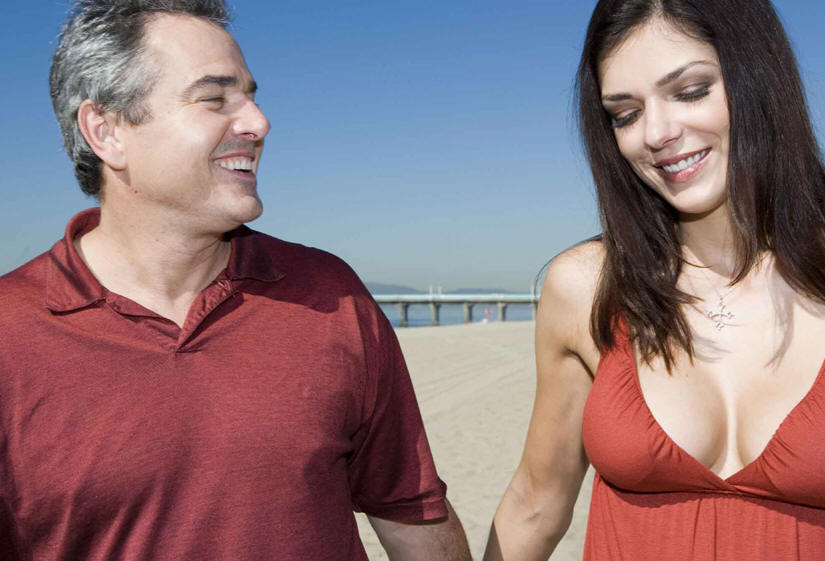 "I
realized that the entertainment industry is something that I just ran away
from," he says. "I had done a couple of things [he had continued to work in
show business, off and on, until he was 25]. Somebody had dug me up for
something for the Travel Channel. And it was fun. And I was good at it. So I
thought, maybe I should re-explore the entertainment industry. I would see
it with totally different eyes now. It was not a threat anymore. This is a
great industry if you can treat it like a hobby."
"I
realized that the entertainment industry is something that I just ran away
from," he says. "I had done a couple of things [he had continued to work in
show business, off and on, until he was 25]. Somebody had dug me up for
something for the Travel Channel. And it was fun. And I was good at it. So I
thought, maybe I should re-explore the entertainment industry. I would see
it with totally different eyes now. It was not a threat anymore. This is a
great industry if you can treat it like a hobby."
With his first go-round, as a child, he was more or less thrown
into it without his say so.
Though he will forever be recognized as a former cast member of
The Brady Bunch and its endless reincarnations over the decades, he had
managed to successfully navigate the choppy waters of a former child star.
"What I was naturally inclined to was science, always have been,"
he says. "I always wanted to see myself in a lab coat with a Bunsen burner,
and being a chemist or a physicist, in that arena. As it turned out, a good
deal of my friends from high school became physicists and engineers. They
drifted into the aerospace industry that was here in Southern California and
then a number of them thereafter drifted into the computer industry. Right
around that same time, I was looking for something to do.
"So I thought that I probably needed to get off on another career
path, before I was thirty and before it was too late. I had friends in that
industry, and I was getting ready to get married the first time, so I
approached some friends.
"I got a job as a rep in the computer industry selling peripherals.
It was a great learning experience and I became an expert on the video side
of things. I took to it, like a duck to water. It sort of was a passion of
mine. I mean, I'm sort of a geek, really."
That's a strong word, coming from a co-star of the show that had
taken its lumps over the years, along with its actors.
"The Bradys weren't cool," he says. "If there was any cool factor
to them, they would have disappeared after they left the airwaves. It's
because what we were doing was timeless, but at that period of time it
wasn't appreciated as much. It's appreciated more so now and all the more as
it continues to live and breathe in perpetuity. It's one of the things I'm
quite grateful for.
"It was a family fairy-tale show, the last of the genre, in the
midst of the conflict in Vietnam, and right through the whole
Nixon/Watergate scandal. This country was just about falling apart. We're
nowhere near as bad today as we were then. And we were produced during that
period of time. A lot of people thought we were an anathema to anything
artistic because we were such a throwback."
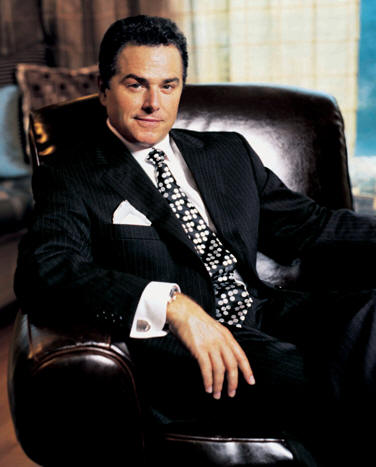 With
a series increasingly considered out-of-touch during its first run, and its
stars at a tender age when peer acceptance and conformity was everything,
Knight had to deal with a yearly return to the cold, hard reality of public
school.
With
a series increasingly considered out-of-touch during its first run, and its
stars at a tender age when peer acceptance and conformity was everything,
Knight had to deal with a yearly return to the cold, hard reality of public
school.
Talk about a reality show.
He says, "I used to complain a lot to my mom, 'I just want to be
normal. I just want to be like everyone else.' The Brady Bunch came
along when I was eleven. Eleven is when you're in sixth grade. I did the
pilot when I was ten. The show began airing when seventh grade began."
All six Brady kids were products of the Los Angeles public school
system, but like most child actors, they were part-timers. They were taught
a good part of each semester right on set (mandated by child labor laws).
Knight found himself academically inclined while learning his precocious
lines and filming scenes that would eventually be etched into the national
consciousness, such as saying "porkchops and applesauce" in the voice of
Humphrey Bogart.
"Every time I came back to public school in the second semester in
February, I was ahead of where the class would be," he remembers. "The
[public school] class never got as far as [we in studio school] got in just
half the semester.
"We had a great environment. We all had parents who were dedicated
to their kids having an education, where education was meaningful, and not
letting something get between us and our education.
"We've got the teacher right there, and any questions were
immediately answered. Attention to the students was there. It wasn't bogus
school. It was real school And because it was so focused, I got a better
education than I would have had I just been in my normal school. I was
pretty much a self-starter anyway. And perhaps all of us are, being out of
that environment."
The real test, however, may not have come in passing geometry or
physics, but in simply letting his peers know that he was, in fact,
Christopher Knight and not Peter Brady.
"Here I am, a seventh grader, recognized, and it's the worst time
in the world to have anyone's attention," he recalls. "By eighth grade, I
wouldn't react to people teasing me. I would laugh with them, at myself. I
just became one of them. If you're different, you're dead. I became Chris,
and I wasn't Peter. It was a very valuable lesson, very early on in life."
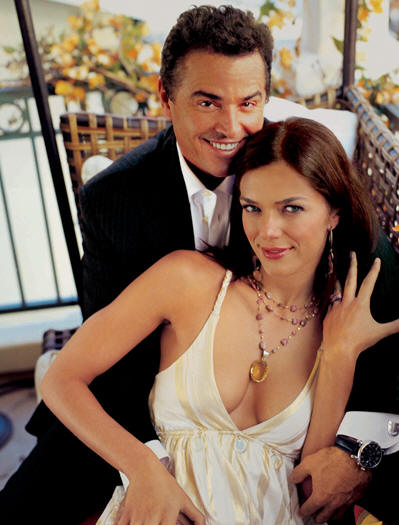 He
carried that lesson with him, clutched tightly to his chest, as the TV jobs
stopped coming and the real world started calling.
He
carried that lesson with him, clutched tightly to his chest, as the TV jobs
stopped coming and the real world started calling.
"By being in another industry, by being in business, The Brady
Bunch becomes an asset," he says. "In the world of television and
movies, the Bradys as a credit is not a flag you wave too high, but when
you're in the business world, it's an incredible ice breaker and door
opener.
"I've learned that it can open doors, perhaps, because it's so
unique. It's a novelty, but the novelty wears off and I'd better be doing my
job, because if somebody gave me a favor because it was a novelty, and I
burned them, then I'm remembered longer too. So it served me well in
business in helping me get started. It was something I had to deal with for
a number of years. Because I was in a new industry, people just assumed I
was taking advantage of being Peter and really didn't have any idea of what
I was doing or having any knowledge."
Despite,
or maybe because of his success, he had to overcome some very real
roadblocks that went far beyond the computer learning curve.
"I grew up leaning toward the sciences, but I was a very slow
reader," he says. "I had dyslexia and a little ADD [Attention Deficit
Disorder] as well. It made a lot of sense to me when I was diagnosed with
that in '95. That was my problem with education and staying on that track. I
really wanted to stay in school, but there was going to be so much reading.
"I could read anything in the sciences, but as soon as you put me
in an English class or a lit class, my interest wasn't there and I
couldn't…I just thought I was lazy.
"My younger brother passed away, and I went into
grief counseling
on that, and it was in the second session that the doctor basically said
that I had ADD. It was pretty clear that I could use some help. The first
drug I took, it did just enough to change my life completely, made it a lot
easier to focus and stay on track.
"I was struggling with focus, and I always knew it. And at times,
it just got worse. Much worse. I always had to fight through it. It
always felt like I was pulling an anchor. I wished for myself more
productivity. More capability. I knew that I could do more. I would just get
stuck. And my problem was getting in and out of things. If I stopped, I
couldn't start it again, like writing a letter or a report."
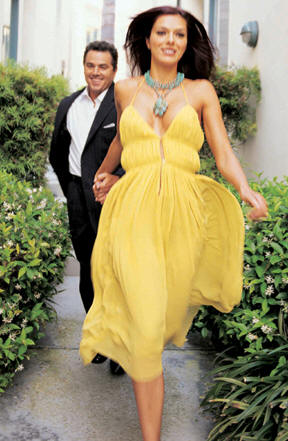 Eventually, the triumph presented itself, and now he finds himself
once again being the center of a large audience's attention. His wife,
reportedly, has not ever seen an episode of The Brady Bunch (now
that's surreal!), but their series follows another classic treasure of
that genre.
Eventually, the triumph presented itself, and now he finds himself
once again being the center of a large audience's attention. His wife,
reportedly, has not ever seen an episode of The Brady Bunch (now
that's surreal!), but their series follows another classic treasure of
that genre.
"Adrianne represents the modern Lucy," he says. "Lucy in leather."
On the reality of reality television, he says, "It's very real in
our case. It's subject to manipulation. Editing is its own form of
manipulation. If you take ten people and have them view the same accident,
they will all have a different point of view on that accident. Editing is
essentially one person's view of that. So, that being said, in recognizing
no matter how much and how real reality television is, it is open to
someone's artistic interpretation to put it together.
"Ours is very real. It is a condensed version of us. And, of
course, the drama is the part that they're interested in, so it's made to
look like there's drama 24/7. And there's not. But none of what happens in
front of the camera is of anybody's design. It's what happened.
"Some of the environments we find ourselves in, and some of the
agitation, is because of the cameras. We can't just go out to a restaurant,
because they have to have clearance and pre-light it. It's not like we're
free just to have our day and the cameras are following us around like a
documentary. We more or less try to figure out what we're going to do for
the next couple of weeks and make some plans. It's sort of like they build
the maze and throw the cheese in."
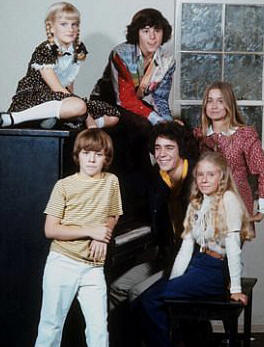 Even with the success of My Fair Brady and a glimpse of
Christopher Knight as is, he will still forever confront his alter-ego,
created decades before.
Even with the success of My Fair Brady and a glimpse of
Christopher Knight as is, he will still forever confront his alter-ego,
created decades before.
"It's odd," he says of the constant recognition. "It's also a
responsibility of sorts, one of which I'm expressing in deciding to do non-Brady
type stuff. It's a great honor to have been a Brady, but it's a tight box.
It's not entirely who I am. I would say that if you are going to use a logic
scenario, I'm all that Peter is, but I'm much more than that. Again, it's a
small box. He's more limited in his scope, in his reach. But he's not
entirely dissimilar to me.
"I went through my period where I didn't want to be a Brady. I
wanted to ignore it and I wanted it to go away. But then I had an epiphany
that this thing is bigger than I am, and it's always in the room before I
am, it's always in the room after I am.
"As a matter of fact, for most people, Peter is the identity they
know, and this thing doesn't die. And it probably won't. Then it's something
I have to either learn to live with, and at best learn to love it and
appreciate it as others have, or it is going to be a very difficult life. I
learned to make certain that it was a great anecdote, but it wasn't the full
me."
Apparently, mission accomplished, as Knight feels out some new
projects in the business, while continuing to make room for Peter.
"It's a blessing and a curse all rolled into one," he says. "It's
the perfect balance."
Email
us Let us know what you
think.
Features
Return to the features page.

Copyright ©2008 PopEntertainment.com. All rights reserved.
Posted:
February 25, 2008.